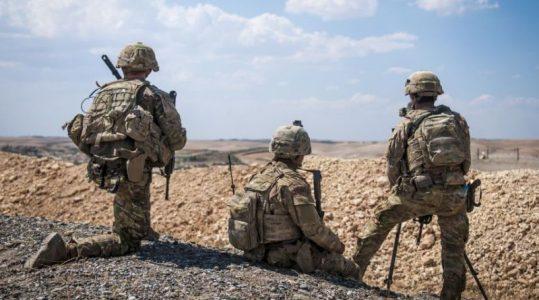
More than twenty terror groups active in Afghanistan amid the US army withdrawal
Even as the United States military prepares to advance towards withdrawing its remaining troops from Afghanistan, more than 20 Pakistan-based terror groups are still active in the country, raising questions on how Washington can ensure its own national security.
Afghanistan is a hub for numerous US-designated foreign terrorist organisations (FTOs), coupled with the loss of much of the US intelligence and tracking capabilities as a result of the troop pullout, which has many analysts and experts scratching their heads, writes Hollie McKay for CNSNews.
How Washington will ensure that Afghanistan does not again become a sanctuary for terrorists to plot attacks on western soil.
Despite splintering and morphing of different outfits, military analysts have identified over 20 terror groups operating against the Afghan government since 2017. Many of these groups are based in, or have some form of a coordinating presence in neighbouring Pakistan.
These include Al-Qaeda, ISIS, the Haqqani Network as well as the Lashkar-e-Taiba, Lashkar-e-Jhangvi, Jaish-e-Mohammad, the Pakistani Taliban (Tehrik-e Taliban Pakistan), and the Islamic Movement of Uzbekistan.
“The counting of how many different groups operate in Afghanistan is more an art form than a counting job since terrorist networks had the habit of changing, cooperating and separating over the past two decades… What is clear is that, in addition to the Taliban, there are several additional groups operating in Afghanistan,” said Dr Hans-Jakob Schindler, senior director at the Counter Extremism Project.
He further said that the groups first and foremost present a threat to Afghanistan, Pakistan, Central Asia and potentially Iran.
“However, of course, al-Qaeda as well as [ISIS] are still determined to conduct attacks on the US homeland and their presence in any of the global conflict zones will always be of concern. And Afghanistan continues to be, of course, a very active conflict zone which is permissible for terrorist organizations,” he added.
McKay writes for CNSNews that authorities have attributed the ongoing terrorist and insurgency scourge primarily to the expansion of unregistered mosques and radical madrassas.
Regarding the Taliban, the US government has never designated it as an FTO, despite its use of classic terrorist tactics, including suicide bombings, targeted assassinations, abductions, the use of improvised explosive devices and the slaughtering of civilians.
According to McKay, the US has deliberately not taken the step to designate Taliban in order to enable negotiations, such as those in Doha that produced the February 2020 agreement, to go ahead in a bid to find a diplomatic solution to the conflict.
“On the one hand, the Taliban have for years maintained that they will not allow international attacks being planned from within Afghanistan. On the other hand, they have – until now – never gone beyond that statement and have not issued a statement clearly separating themselves from al-Qaeda,” said Schindler.
Meanwhile, US Central Command commander Marine General Kenneth McKenzie told the House Armed Services Committee last week that some troops will remain in the wider region, citing “offshore, over-the-horizon options”, reported CNSNews.
He further said diplomats are working to find new locations in the broader region as bases for intelligence assets.
US President Joe Biden earlier this month had said that the United States will start its final withdrawal of troops from Afghanistan on May 1 and complete its pullout ahead of the 20th anniversary of the September 11 terrorist attacks.
“The United States will begin our final withdrawal beginning on May 1 this year,” Biden had said.
Afghanistan President Ashraf Ghani had earlier said the announcement of the withdrawal of foreign forces from Afghanistan will require that Pakistan make a decision on its Afghan policy — whether to opt for cooperation or enmity with its neighbour.
Source: Big News Network





